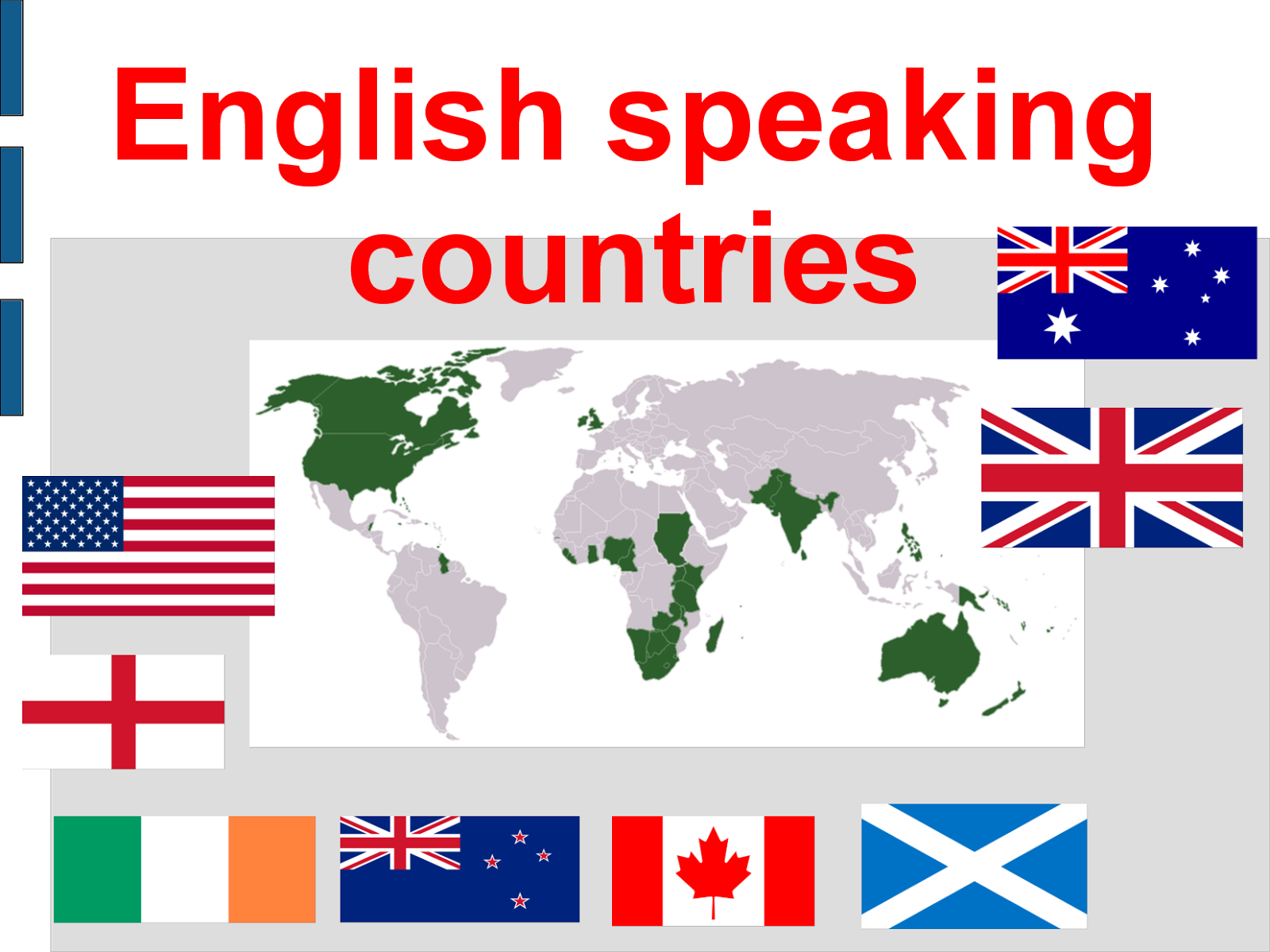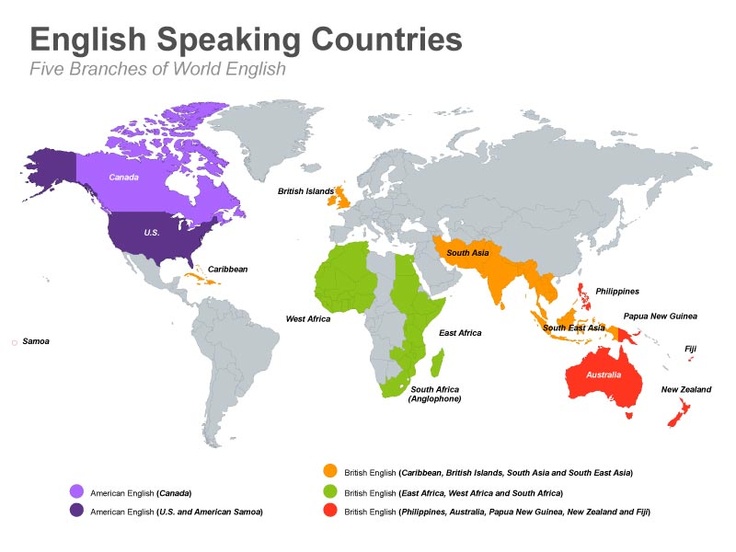English speaking countries play a vital role in global communication, trade, and culture. With millions of people speaking English as their first or second language, understanding these nations can provide valuable insights into their cultures and economies. In this article, we will explore the various English speaking countries around the world, their significance, and what makes each unique.
The English language has evolved and adapted across different regions, giving rise to various dialects and accents. From the United States to Australia, each English speaking country has its own distinct identity shaped by history, culture, and geography. As the world becomes increasingly interconnected, understanding these nations can enhance our global perspective.
In addition to linguistic diversity, English speaking countries also have significant political and economic influence. Many are members of international organizations, shaping global policies and standards. This article aims to provide a thorough understanding of English speaking countries, highlighting their contributions to the world stage.
Table of Contents
- Biography of English Speaking Countries
- Data and Statistics
- Importance of English Speaking Countries
- Cultural Diversity in English Speaking Countries
- Economy of English Speaking Countries
- Education Systems in English Speaking Countries
- Tourism in English Speaking Countries
- Conclusion
Biography of English Speaking Countries
English speaking countries can be categorized into two main groups: those where English is the first language and those where it is widely spoken as a second language. Below is a table outlining some key data about notable English speaking countries.
| Country | Capital | Official Language | Population |
|---|---|---|---|
| United States | Washington, D.C. | English | 331 million |
| United Kingdom | London | English | 67 million |
| Canada | Ottawa | English, French | 38 million |
| Australia | Canberra | English | 25 million |
| New Zealand | Wellington | English, Māori | 5 million |
Data and Statistics
According to the Ethnologue, English is the third most spoken language in the world, with approximately 1.5 billion speakers. This includes both native and non-native speakers. Here are some interesting statistics:
- Over 375 million people speak English as their first language.
- About 1.2 billion people are learning English globally.
- English is an official language in over 70 countries.
- It is the dominant language of international business and diplomacy.
Importance of English Speaking Countries
English speaking countries hold significant importance in several domains:
- Cultural Influence: Music, films, literature, and art from these countries have a profound impact on global culture.
- Economic Power: Many English speaking countries are among the largest economies in the world, contributing to global trade and finance.
- Political Influence: These nations often play key roles in international relations and organizations.
Cultural Diversity in English Speaking Countries
Each English speaking country has its own unique cultural landscape, shaped by history, immigration, and indigenous traditions. Here are some examples:
United States
The United States is known for its cultural melting pot, where diverse communities contribute to a vibrant cultural scene. Festivals, cuisine, and art reflect the nation's multicultural heritage.
United Kingdom
The UK boasts a rich history and cultural diversity, from Shakespearean literature to contemporary music scenes. Each region has its own distinct cultural identity, from Scottish bagpipes to Welsh choirs.
Australia
Australia's culture is influenced by its indigenous peoples and immigrant communities. The nation's arts, sports, and cuisine reflect this diversity, making it a unique cultural hub.
Economy of English Speaking Countries
The economies of English speaking countries are diverse, with various industries driving growth:
- Technology: The US and UK lead in technological innovation, with Silicon Valley being the epicenter of tech startups.
- Tourism: Countries like Australia and New Zealand attract millions of tourists each year, contributing significantly to their economies.
- Finance: The UK, particularly London, is a global financial hub, influencing international markets.
Education Systems in English Speaking Countries
Education in English speaking countries varies significantly, with each country having its own system:
- United States: The US education system is decentralized, with a mix of public and private institutions.
- United Kingdom: The UK has a robust education system, known for its prestigious universities like Oxford and Cambridge.
- Australia: Australian universities rank highly globally, attracting international students.
Tourism in English Speaking Countries
Tourism is a major sector in many English speaking countries, with attractions ranging from natural wonders to historical sites:
- United States: Iconic landmarks like the Grand Canyon and Statue of Liberty draw millions of visitors.
- United Kingdom: Historical sites such as Stonehenge and Buckingham Palace attract tourists from around the world.
- Australia: The Great Barrier Reef and Sydney Opera House are popular destinations for travelers.
Conclusion
English speaking countries are diverse and influential, each contributing uniquely to global culture, economy, and politics. Understanding these nations enhances our appreciation of their significance in a rapidly changing world. Whether you're interested in travel, culture, or business, exploring English speaking countries can provide valuable insights.
We encourage you to share your thoughts in the comments below or explore more articles on our site to deepen your understanding of this fascinating topic!
Thank you for reading, and we hope to see you again soon!
How Did Griselda Blanco Die: The Life And Death Of A Notorious Drug Lord
A Comprehensive Guide To Aroa: The Rising Star In The Wellness Industry
Open AI Stock: Navigating The Future Of Artificial Intelligence Investments


